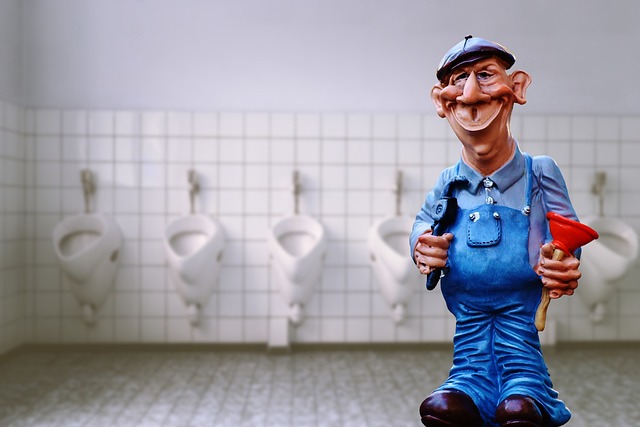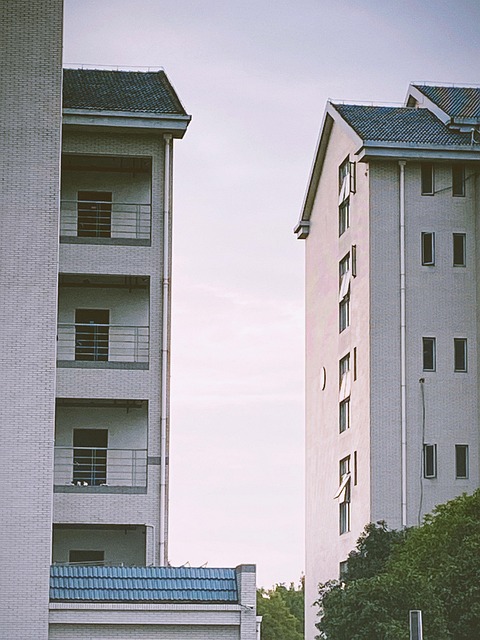Identifying toilet clog causes is key for solutions. A residential plumber expert distinguishes simple issues from complex problems, addressing root causes to prevent recurring clogs. Natural remedies like baking soda, vinegar, hot water, and plungers are eco-friendly alternatives. Boiling water tackles hair, grease, and debris. Baking soda and vinegar unclog safely. Plunging is a valuable skill. Regular maintenance prevents clogs: avoid non-biodegradable items, schedule drain cleaning, inspect for leaks, and address water damage. A residential plumber expert offers comprehensive solutions.
Unclogging a toilet naturally is both eco-friendly and cost-effective. Before reaching for chemical cleaners, consider these best practices recommended by a residential plumber expert. Assess the clog type and identify its root cause—whether it’s a buildup of toilet paper or foreign objects. Gather simple yet effective natural cleaning supplies. Try boiling water flushes, baking soda and vinegar mixtures, or plunger techniques. Implement preventive measures to avoid future clogs.
- Assess the Clog Type: Identify the Root Cause
- Gather Natural Cleaning Supplies: Simple and Effective Solutions
- Try a Boiling Water Flush: Powering Through Blockages
- Baking Soda and Vinegar Mixture: A Chemical-Free Approach
- Plunger Techniques: Master the Art of Suction
- Prevent Future Clogs: Maintenance Tips from a Residential Plumber Expert
Assess the Clog Type: Identify the Root Cause

When dealing with a clogged toilet, understanding the type of clog and its underlying cause is half the battle won. As a residential plumber expert, I’ve encountered various scenarios. Sometimes it’s a simple buildup of household products or toilet paper, easily fixed by a handyman plumbing service. However, other clogs might be more intricate, such as foreign objects like wipes or toys causing blockages. Identifying the issue accurately allows for effective and long-lasting solutions.
For instance, if unclogging drains easily is your goal, removing excess toilet paper or flushing a small, solid object might suffice. But if it’s a recurring problem, there could be structural issues within the pipes demanding professional attention. An emergency plumber Bromsgrove can provide expert advice and ensure the root cause is addressed to prevent future clogs.
Gather Natural Cleaning Supplies: Simple and Effective Solutions

When it comes to unclogging a toilet naturally, a residential plumber expert recommends gathering simple and effective cleaning supplies found right in your home. Baking soda and vinegar are powerful natural cleaners that can dissolve stubborn clogs without harsh chemicals. Additionally, hot water and a plunger are essential tools for pushing through blockages. These easy-to-find solutions offer an eco-friendly alternative to store-bought products and can effectively address minor drain issues before they escalate into more complex problems like gas line repair or the need for plumbing system upgrades.
By opting for these natural remedies, you not only save money but also contribute to a greener home environment. Moreover, these simple solutions are often just as effective, if not more so, than commercial products, helping to prevent plumbing disasters and keep your toilet running smoothly without putting undue strain on your plumbing system.
Try a Boiling Water Flush: Powering Through Blockages

A quick and natural way to unclog a toilet is by using boiling water. This method can be surprisingly effective in breaking up stubborn clogs caused by built-up debris, hair, or other common toilet obstructions. Fill a large pot with water and bring it to a rolling boil; this intense heat can dissolve certain types of blockages. Once the water is ready, carefully pour it directly into the toilet bowl while it’s still plugged. The sudden influx of hot water may shock any organic matter or grease buildup, allowing it to wash away easily. This technique is especially useful as a first response measure before resorting to chemical cleaners, and it can be easily performed by any residential plumber expert.
While boiling water offers a quick fix, it might not address underlying issues like pipe corrosion solutions that could lead to future clogs. Thus, for persistent or recurring toilet clogs, it’s advisable to consult a professional who can assess the situation and employ more comprehensive methods, such as 24/7 leak detection and green plumbing practices, to ensure long-term relief without causing environmental harm.
Baking Soda and Vinegar Mixture: A Chemical-Free Approach

One effective and chemical-free method for unclogging a toilet is by using a mixture of baking soda and vinegar. This natural approach has been relied upon by many homeowners for years, proving its worth as a go-to solution. The process involves combining equal parts baking soda and white vinegar in the blocked toilet. Once mixed, this powerful duo creates a fizzing reaction that helps to break down and dissolve any obstructions within the plumbing.
Residential plumbers often recommend this technique due to its simplicity and safety. Unlike some commercial products, it poses no risk to pipes or septic systems. Moreover, it’s an excellent alternative for those who prefer eco-friendly solutions. While a residential plumbing contract might not always be necessary for minor clogs, for more persistent issues, professionals like gas line repair specialists can offer advanced techniques to address the problem permanently, ensuring your kitchen faucet installation and overall plumbing system remain in top condition.
Plunger Techniques: Master the Art of Suction

Mastering the art of suction with a plunger is a crucial skill for any homeowner to have in their arsenal when it comes to unclogging a toilet naturally. The key lies in creating a powerful seal and using up-and-down motions to generate pressure that can dislodge stubborn clogs. Start by placing the plunger over the drain hole, ensuring it covers the entire opening. Create a tight seal around the rim of the toilet bowl with your hand or a towel if needed. Next, press down firmly on the plunger handle in one smooth motion to create a vacuum. Then, quickly release the handle to allow the air to rush back in, creating a powerful suction force that can break up and dislodge the clog.
Regular practice of this technique will help you become proficient, enabling you to prevent clogs naturally and save on costly residential plumbing installation or emergency calls from a professional. Remember, a good plunger is an essential tool in any homeowner’s toolbox, especially when dealing with common toilet clogs. With a bit of patience and the right techniques, you can handle minor issues without needing to call a residential plumber expert for simple, preventable clogs.
Prevent Future Clogs: Maintenance Tips from a Residential Plumber Expert

Regular maintenance is key to preventing future toilet clogs. A residential plumber expert recommends implementing simple habits to keep your plumbing system running smoothly. Start by avoiding flushing non-biodegradable items like sanitary products, wet wipes, or food scraps down the toilet. These items can build up in your pipes and cause blockages over time.
Additionally, scheduling periodic drain cleaning and inspecting for leaks is essential. A residential plumber expert suggests checking for any signs of water damage or leaks around fixtures and appliances connected to your sewer line. Promptly addressing these issues can prevent more serious problems like boiler repair or even the need for a costly sewer line replacement down the line.
Unclogging a toilet naturally doesn’t have to be complicated. By understanding your clog type, arming yourself with simple supplies, and employing effective techniques like boiling water flushes, baking soda and vinegar mixtures, and plunger mastery, you can tackle clogs head-on. Remember, preventive measures are key, so follow the maintenance tips from a residential plumber expert to keep your pipes flowing smoothly.
